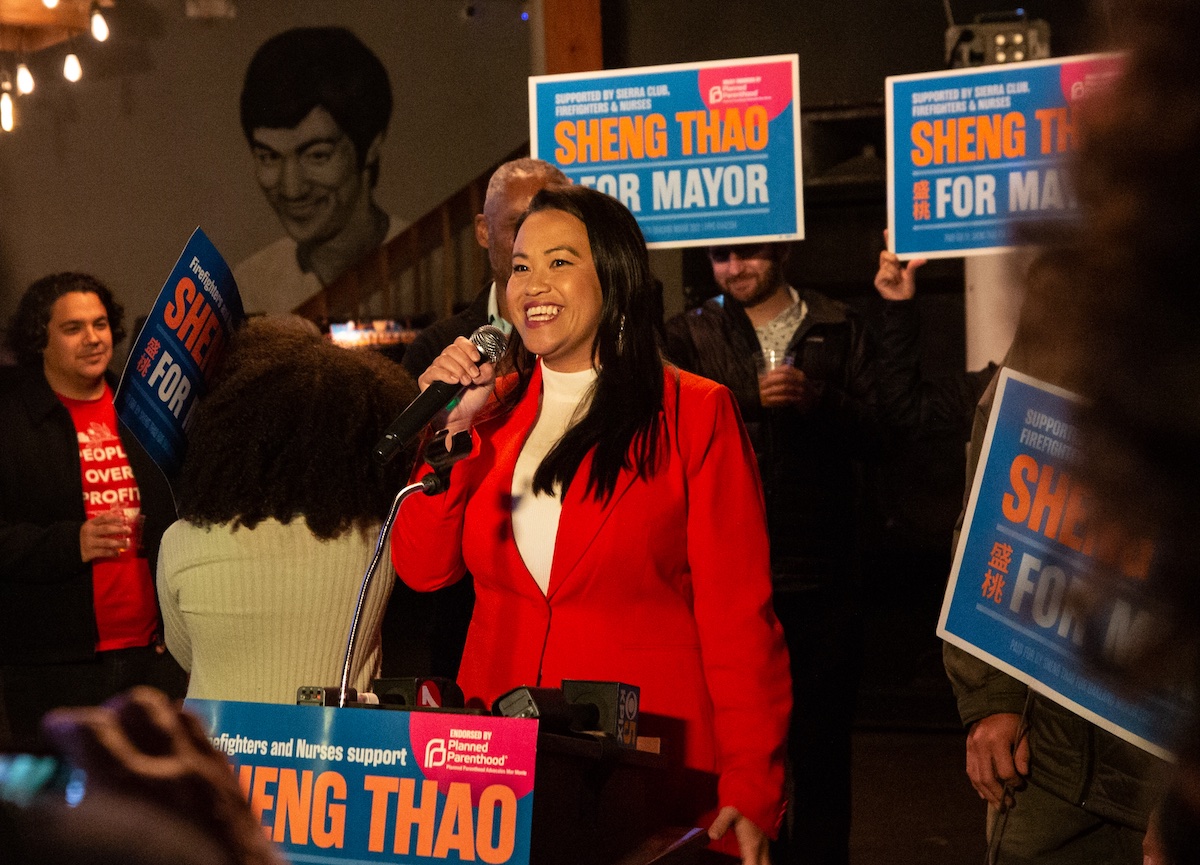Updated Friday, Dec. 16 at 2:35 p.m.
Sheng Thao defeated Loren Taylor by 677 votes in the Nov. 8 election and is set to become Oakland’s next mayor in January, but some have questioned the results and criticized the method—ranked choice voting—that produced them, and have requested a recount.
On Wednesday, Alameda County Registrar of Voters Tim Dupuis confirmed that his office planned to conduct a new count of the ballots to determine whether or not Thao really won.
“We have received several formal requests for a recount,” Dupuis wrote in an email to The Oaklandside. “We are contacting all interested parties and are hoping to start the work this Friday.”
Dupuis did not say who made the request, but under state law, any registered voter can ask for a new tally of ballots.
On Thursday, Dupuis told local video blogger Zennie Abraham in a live Youtube interview that the parties requesting the recount need to pay the $21,000 each morning before 9 a.m. for the hand recount of ballots to proceed.
But on Friday, the registrar’s office posted an update on Twitter, stating that no one paid for the new count and the request has been “forfeited.”
It’s unclear if a recount is still possible. The registrar’s office did not return multiple phone calls or emails from The Oaklandside over the past two days. The Oakland City Council is set to certify the election results at their meeting next Tuesday, and Thao will be sworn into office in January.
Taylor conceded the mayor’s race on Nov. 22, but he criticized ranked-choice voting, the system Oakland uses to pick its mayor and other elected officials, calling it a form of “voter suppression.” Taylor also said he wouldn’t be leading a recount campaign, but he knew of several groups pursuing a potential recount.
This week, the Oakland chapter of the NAACP said in a public letter it supports a recount. The group pointed out that about 3,000 ballots had overvotes on them and therefore didn’t end up counting in the final ranked-choice tally. The group also noted that about 5,000 voters didn’t select anyone for mayor, and 10,000 ballots overall were exhausted by the final round of ranked choice, which gave Thao her 677 vote advantage.
Sean Dugar, a voting rights expert and supporter of ranked-choice, recently told The Oaklandside that exhausted ballots are normal, as voters are allowed to only rank up to five of their preferred candidates. In a 10-person contest, some voters won’t include any of the candidates who make it to the final rounds in their ranked-choice selections, so these ballots are set aside and don’t end up counting in the final tally.
But Dugar said the 3,000 overvotes is concerning. An overvote is when a voter makes an error on their ballot by ranking two or more candidates at the same level. For example, if a voter picked Sheng Thao and Loren Taylor as their third choice, only their first and second-ranked candidates would receive their vote during the ranked-choice runoff, and their ballot would be set aside in the third round because of the overvote. The much higher percentage of Oakland voters who made this kind of mistake in this election compared to ranked-choice elections in other cities and states is something that needs to be looked into, said Dugar.
But Dugar defended ranked choice voting, saying it’s still a more democratic system than the traditional election where a field of candidates compete in a spring primary and the top two vote getters face off in the fall general election.

In this year’s mayor’s race, the fourth since Oakland adopted ranked choice voting in 2010, Taylor received the most first-choice votes out of the 10 candidates, but this only amounted to 34% of the total votes. Thao was second with 32%. As the lowest-ranking candidates were eliminated one-by-one in each round of the ranked choice runoff, Taylor maintained his slim lead and then pulled away form Thao by more than 3,500 votes when Treva Reid was eliminated in the sixth round. But Thao took the lead when Allyssa Victory’s votes were redistributed in the next round. Not enough supporters of Ignacio De La Fuente, who was eliminated in the final round, supported Taylor for him to recapture the lead.
Ranked choice voting has been used since the 1800s in the United States, but in recent years it has been adopted by an increasing number of cities, counties, and states to pick leaders.
NAACP chapters in other states have criticized ranked choice voting, including in New York City where the group’s leader called it a form of voter suppression last year because it could confuse some voters. Elsewhere, like Missouri, local NAACP groups have supported ranked choice voting.
Opposition to ranked choice voting has also come from conservative organizations, like the Alaska Policy Forum—Alaska adopted ranked choice voting in 2020—and the Foundation for Government Accountability, both of which are part of the State Policy Network, a national coalition of think tanks in all 50 states that have been involved in efforts to limit the power of labor unions, shrink welfare programs, and make it harder for people to vote in the name of election integrity.

